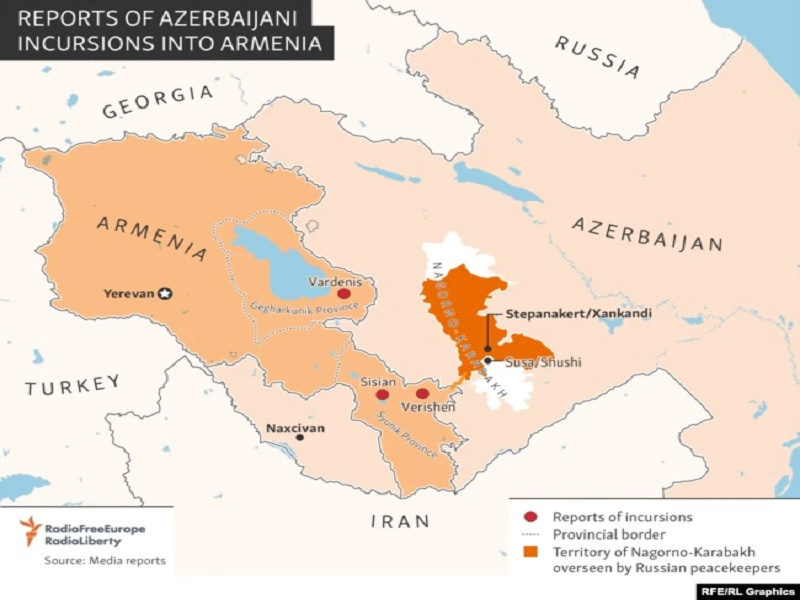The Latest South Caucasus Clashes Are Timed To Exploit Russia’s Setback In Kharkov Region
Russia will investigate all the facts connected with these latest clashes in order to determine which country provoked them, after which it’ll react accordingly even if it doesn’t do so directly or publicly. That's because the aggressor will be considered by Moscow to be a dangerous US Hybrid War proxy for containing it through the opening of a "Southern Front" timed to coincide with its recent setback in Ukraine.
Armenia and Azerbaijan once again traded accusations that the other attacked their forces without provocation, which in turn led to them also trading fire across their shared border. While it remains unclear which side was responsible for the latest aggression, it’s obvious that the culprit aimed to exploit Russia’s setback in Kharkov Region over the weekend. From this observation, the latest clashes can be interpreted in two ways.
Viewed from the Armenian perspective, Azerbaijan (almost certainly backed by its Turkish ally as part of a possible regional power play) sought to militarily resolve the problem of armed fighters remaining on its universally acknowledged territory that it’s previously drawn enormous attention to. Baku’s motivation in this scenario would have been to force an Armenian retreat while Russia’s distracted in Ukraine and ultimately coerce Yerevan into completely withdrawing from Karabakh.
From the Azerbaijani perspective, Armenia might have been encouraged by the US (considering CIA chief Burns’ visit in mid-July) to provoke another Continuation War for the purpose of opening up a so-called “Southern Front” that would divide Russia’s military focus from Ukraine. Accordingly, Yerevan’s motivation in this scenario would have been to force an emergency Russian intervention for protecting its remaining fighters in Karabakh, which could have risked a wider war with Azerbaijan and Turkey.
Building upon the above scenarios, each would have very serious consequences for Russia’s relations with the aggressor, but they also have three points in common: 1) they were preplanned to exploit disadvantageous military developments for Russia in Ukraine; 2) they’d worsen Russia’s ties with Azerbaijan and Turkey; and 3) they’d weaken Russia’s influence in the South Caucasus. It can therefore be concluded that the latest clashes advance America’s grand strategic interests.
Both conflicting parties have close ties with that declining unipolar hegemon so it’s impossible to discern from their bilateral relations alone which was responsible for what just happened. Nevertheless, Russia will predictably investigate all the facts connected with these latest clashes in order to determine which country provoked them, after which it’ll react accordingly even if it doesn’t do so directly or publicly. That’s because the aggressor will be considered by Moscow to be a dangerous US Hybrid War proxy.




